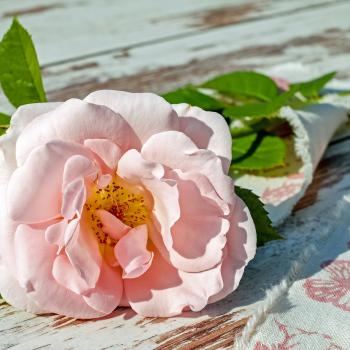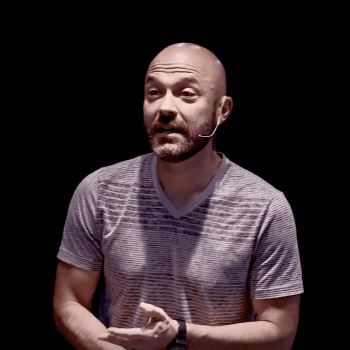When I wrote about the purity culture and sexual dysfunction last week, I had no idea how many chords that simple post would touch. I had no idea how much attention it would get. Only fifteen hours after I posted it, it had more page views than any other post I have ever posted. Not more than any other post had after fifteen hours, more than any other post had total. Today, it has more than twice as many page views than any other post. To be perfectly honest, this attention surprised me. Perhaps it is simply because so few people in my position are willing to be so vulnerably honest about how the Purity Culture affected them.
I’ve thought more since about what I wrote, and I’ve had some additional thoughts. Have you ever heard the phrase “don’t waken love”?
That’s a phrase used in the purity culture, and the idea is that you shouldn’t awaken sexual feelings or desires until you are at the point of marriage. Killing your sexual impulses and thoughts they way I did, becoming essentially asexual, is the goal of the purity culture, and in that sense my story is a purity culture success story, not a cautionary tale. For the purity culture, the only problem with my story was the trouble I had shifting from being asexual to becoming an actual sexual agent. In fact, I read a post by another blogger saying just this – that my post reveals that more attention needs to be paid in the transition from saying “no, no, no” to saying “yes, yes, yes.” I do think that this is absolutely part of the problem, and is absolutely something that should be addressed. That transition is hard for a lot of young adults raised in the purity culture, and it is absolutely something the purity culture needs to find a way to better deal with. But. This really isn’t the core of my critique.
The transition from asexual to active sexual agent was extremely difficult, but in my opinion the main problem was not this transition but rather the way I was taught to approach my sexuality in the first place. I was taught to strangle it. Many of my readers said they weren’t as good at stifling their sexual desires and thoughts as I was, and as a result rather than dealing with a complete dearth of sexual impulses they dealt with a great load of guilt as they matured. This really is just the other side of the coin – you either smother your sexuality or you suffer endless guilt. Why? Because you’re taught that any sexual thought, fantasy, or action before marriage, regardless how small, is sin.
I don’t have any problem with people waiting to have sex until marriage. I don’t have any problem with people having sex before marriage. Honestly, I don’t care when people do or don’t have sex. But when young people are taught that their blooming sexuality is somehow sinful, and as a result either smother their sexuality or grow up under loads of guilt, that I do have a problem with. I also have a problem with young people having information about sex withheld from them, or being lied to about birth control or STDs.
The reality is that humans become sexually mature in their mid teens, long before the average age of marriage in the United States. “Not wakening love” does not take this into account. In order to “not waken love” in a teenager going through puberty and achieving sexual maturity, that teen has to smother his or her developing sexuality. I’m not saying that sexual maturity means that someone must have sex, but rather that at sexual maturity your sexuality becomes a natural part of you as an individual. You can suppress it, you can feel guilty because of it, but that doesn’t change the biological reality.
The purity culture is therefore working against a biological reality. One solution for the purity culture is the one it’s following now: urging its young people to either suppress their sexuality or suffer loads of guilt. I don’t like this solution. Another solution for the purity culture might be to move the age of marriage up to fifteen or seventeen, but given the way our society is set up, that makes little sense. I don’t like this solution either. A final solution for the purity culture is to change the way sexuality before marriage is approached. Understanding sexuality as a natural part of being a sexually mature human being does not necessarily mean having sex in one’s teens or having sex before marriage.
I have a daughter. For me, this discussion is not theoretical. I don’t have any interest in when my daughter starts having sex: if she wants to wait until marriage, fine; if she wants to have sex when she’s in high school, fine. My interest is different: I want my daughter (a) to embrace her sexuality as a natural part of herself, (b) to make her own choices without pressure or expectation, and (c) to have the information she needs to make informed and responsible choices.
(a) I don’t want my daughter to feel shame over her developing sexuality, and I will do my best to help her see the changes she goes through, and the new desires she experiences, as natural. At the same time, I will teach her that her sexuality is only one part of her, and that her value lies within herself, in her talents, interests, and desires, not in her sexuality. I intend to teach her that embracing her sexuality is not synonymous with having sex. In sum, I hope to teach my daughter that her developing sexual desires, feelings, and thoughts are natural and okay, but also that her sexuality does not define her.
(b) I don’t want my daughter to decide to have sex or to not have sex based on what some man, whether pastor, father, or boyfriend, tells her. I want her to make her own choices. I want her to wait until she’s ready for sex, and not give in to pressure to have sex before she feels she’s ready. At the same time, when she decides she’s ready I don’t want anyone to stand in her way. I want her to make her own decisions, not to simply acquiesce to other people making decisions about her life and her sexuality.
(c) But of course, my daughter won’t be able to make responsible and informed decisions unless she has access to information about sex, health, and birth control. I will make sure that she has access to that information. I didn’t know what sexual parts I had until I was twenty (I’m not kidding), and I don’t want her to be in the same situation. I want her to understand her body, understand the risks of sex, and understand the various forms of birth control and protection. I want her to understand the arguments of free love advocates and the arguments of those who advocate waiting until marriage. And with that information, I hope to enable her to make informed and responsible decisions for herself.
My point here is that I really don’t care when people start having sex. If someone decides it means something to them to wait until marriage, fine. Honestly, when people start having sex is not anyone’s business but theirs. What I care about is that young people approach their sexuality with understanding rather than guilt, that young people are allowed to make their own choices, and that young people have access to the information needed to make responsible decisions.
The thing is, I didn’t have any of this. None. I was taught to see any sexual thought in my teens as sin and perverted, I was told what my decision would be rather than allowed to really honestly decide things for myself, and I was not given accurate information, or really information at all, about sex, health, or birth control. It is this, not the difficulty of the transition from being essentially asexual to being an active sexual agent, that I see as the main problem with the purity culture.
So I’m glad that some in the purity culture have seen merit to my point about the difficulty of the transition from saying “no” to saying “yes,” but I think there’s a lot more that they need to think about and address than just that. You see, if the only issue were going from saying “no, I don’t want to have sex today” to “yes, I want to have sex today,” that wouldn’t be a problem, because everyone who ever has sex has to make that transition. While I think it’s good for the Purity Culture to address the transition from no to yes, when it does so it’s only dealing with a symptom of the problem, not the problem itself.
You see, the reason this transition was so difficult for me was because of the points outlined above: How was I to go from seeing my sexuality as sinful and something to be avoided to seeing it as a beautiful and natural part of my life? How was I to go from passively accepting what I was told about sex to being an active sexual being? How was I to have sex at all given that I’d been kept so ignorant that I didn’t even understand the basic mechanics of sex, let alone issues of sexual health? The problem isn’t moving from saying “no” to saying “yes” and it isn’t deciding to wait until marriage to have sex. The problem is being taught to see your adolescent sexuality as sinful, never being allowed to make your own decisions or be an active agent, and having only misinformation and ignorance about sex. And so you see, when you get down to it, the problem is really honestly truly not about wanting to wait until marriage. It’s all the baggage that the Purity Culture strings along with that.














